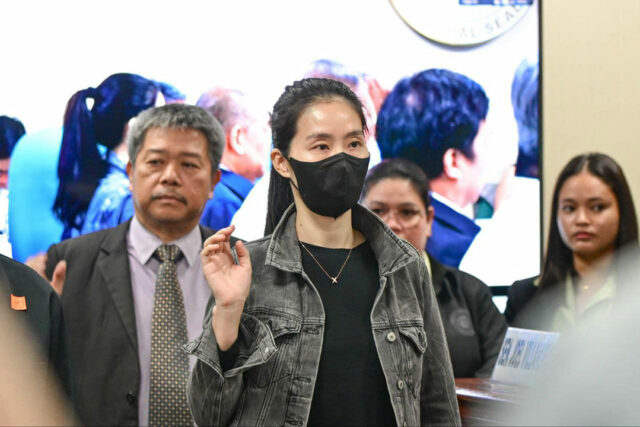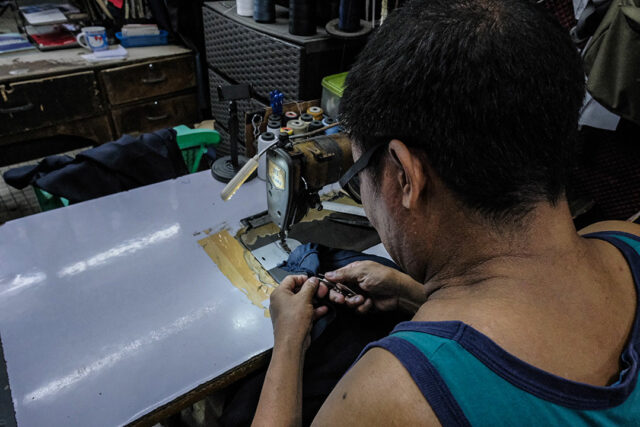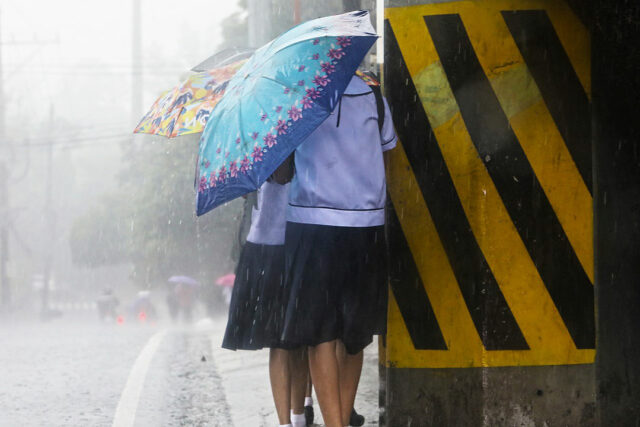By Kyle Aristophere T. Atienza and John Victor D. Ordoñez, Reporters
THE PHILIPPINES’ National Maritime Council on Wednesday said there’s a need to update the Philippines’ Mutual Defense Treaty (MDT) with the United States, citing the changing geopolitical landscape.
“Maybe it’s high time now to make the review,” council spokesman Alexander S. Lopez, Jr. told reporters, noting that the treaty should be “relevant to new security challenges.”
Washington is bound by the treaty to defend the Philippines in case of an armed attack on its forces, public vessels or aircraft in the South China Sea.
The geopolitical landscape has changed a lot since the two countries ratified the treaty in 1951, Mr. Lopez said. Add to this China’s expansionist stance and continued attempts to block Manila’s resupply missions to Second Thomas Shoal, he added.
The Philippines has accused China of dumping dead corals at Sabina Shoal, another feature in the South China Sea that both claim, to alter its elevation so it could reclaim the area.
The Chinese Embassy in Manila did not immediately reply to a Viber message seeking comment.
Both countries have been trading blame over collisions near the shoal, which has been a staging ground for Philippine resupply missions to Second Thomas Shoal. Both shoals are within the Philippines’ exclusive economic zone.
There have been domestic calls to clarify provisions of the treaty after a June 17 standoff at Second Thomas Shoal, where Chinese forces allegedly threatened, using bladed weapons, Filipino troops delivering supplies to a Navy outpost there.
Filipino soldiers fought with bare hands, and one of them lost a thumb when his vessel was rammed by Chinese forces, according to the Philippine military.
Raymond M. Powell, a fellow at Standard University’s Gordian Knot Center for National Security Innovation, said the main question is whether the treaty should be updated or “simply needs its application clarified under current conditions.”
He noted that top US officials including President Joseph R. Biden and Defense Secretary Lloyd J. Austin have repeatedly clarified that the treaty applies to the South China Sea.
Formal consultations under Article III of the 1951 Mutual Defense Treaty (MDT) should be the initial steps in any attempts to update the treaty, Mr. Powell said in an X message.
Under the treaty, both countries through their Foreign ministers will regularly consult each regarding the pact’s implementation and “whenever in the opinion of either of them the territorial integrity, political independence or security of either of the parties is threatened by an external armed attack in the Pacific.”
“Trying to push a revised MDT through both nations’ Legislature is a long and difficult process,” Mr. Powell said. “Perhaps it would be worth doing, but Article III consultations would help determine if the payoff would be worth the effort.”
Sabina Shoal, which is 140 kilometers off the Philippine island of Palawan, has become another flashpoint for the Philippines and China.
Mr. Lopez cited Chinese efforts to please its domestic audience by accusing the Philippines of intentionally ramming its ships.
“Nobody is buying that narrative,” he said. “Their audience is basically domestic, but ours [narrative] is factual.”
“We are even appreciative of the response of the international community condemning the harsh actions, aggressive actions, life threatening actions perpetrated by the Coast Guard vessels,” he added.
Mr. Lopez said the Philippine Coast Guard was now gathering evidence to counter China’s claims that it had rammed its ships near Sabina Shoal.
“It’s very clear that the Philippines is currently threatened by an ‘external armed attack,’ so consultations would certainly be appropriate,” Mr. Powell said. “It would also serve as an important signal to China that its aggression has brought it to a dangerous point.”
DETERRENCE
Also on Wednesday, Senate President Francis G. Escudero said a proposal for US ships to escort Philippine resupply vessels in the South China would likely deter Chinese aggression.
“It will be a deterrent,” he told a news briefing. “However, I am confident that the President will measure this very carefully, with the view of not escalating tensions that may lead to increased military activities in the area or potential military confrontation.”
Samuel Paparo, commander of the United States Indo-Pacific Command, told a forum on Tuesday it is an “entirely reasonable option,” though that would require consultation between the treaty allies.
Chester B. Cabalza, founding president of Manila-based International Development and Security Cooperation, said China would likely counteract the move or succumb to “joint deterrence.”
“The proposal stirs a timely need, but the Philippines should lead the pact,” he said in a Facebook Messenger chat. “On one hand, if agreed upon, this would show the military might of the two allies.”
That treaty should be interpreted more broadly to tackle a “dynamic and cunning adversary,” Philippine Defense Secretary Gilberto Eduardo C. Teodoro, Jr. told reporters on Tuesday, although it has already proved to be a “great deterrent” in the South China Sea.
On Sunday, Manila’s South China Sea task force accused Chinese vessels near Sabina Shoal of ramming and using water cannons against a Philippine fishery vessel transporting food, fuel and medicine for Filipino fishermen.
The Chinese Coast guard said the Philippine vessel “ignored repeated serious warnings and deliberately approached and rammed” China’s law enforcement boat, resulting in a collision.
Mr. Escudero reiterated his call for the Office of the Solicitor General (OSG) to file before a local court a petition seeking to enforce a 2016 ruling by United Nations-backed tribunal, which voided China’s expansive claims for being illegal.
“We are hoping the OSG will file a petition to request the recognition of this foreign ruling so that its decision becomes a binding law in the Philippines,” he said.
At a Senate hearing on the Department of Justice’s budget for next year, Mr. Escudero said making the 2016 decision part of the law of the land would ensure that Philippine officials, especially the President, would follow it.
China claims sovereignty over nearly all of the South China Sea, including areas claimed by Brunei, Indonesia, Malaysia, the Philippines, Taiwan and Vietnam. Beijing has deployed an armada of vessels to protect its claims.












